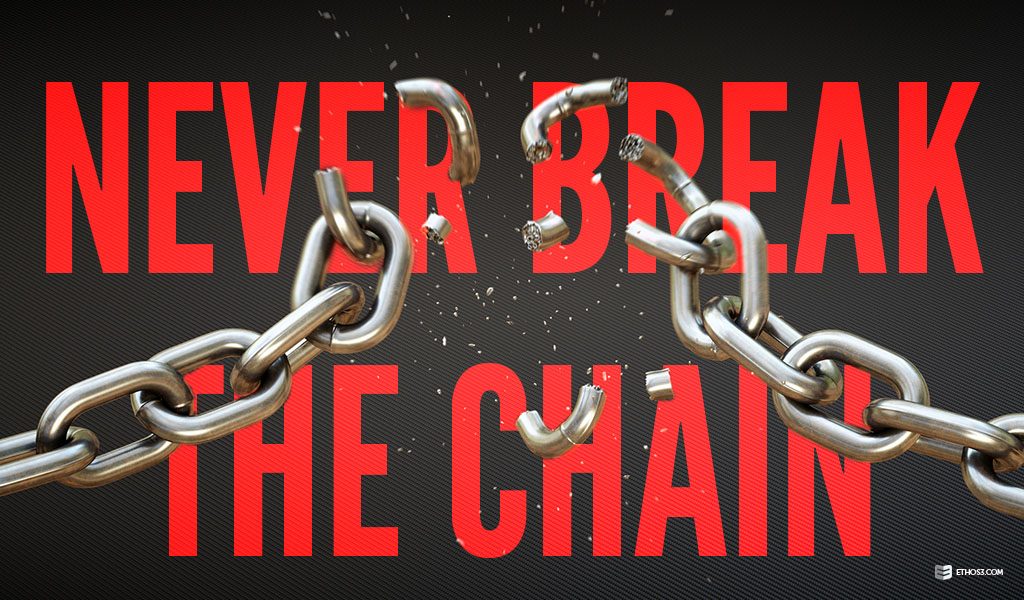Jerry Seinfeld. Maybe you’ve heard of him? You know, he’s that record-breaking comedian who wrote and starred in a television show that will go down in history as one of the best sitcoms ever. In other words, Jerry Seinfeld is a damn successful individual. And he didn’t get there by accident.
Years ago, an aspiring comic, Brad Isaac, bumped into Seinfeld at an open mic night. Seizing the opportunity to get advice from the best of the best, he asked Jerry whether he had any tips for getting better as a young comic. The advice Jerry offered is nothing short of priceless and it’s something we can all apply to our lives to be more productive and creative each day.

Seinfeld told Isaac that the key to success is to build a motivating chain of daily work. He suggests displaying a big wall calendar featuring every day of the year and marking off each day that you complete your daily task toward your goal. After a few days, you’ll begin to build a chain, and it’s vitally important that you never break the chain.
In other words, Seinfeld’s key to success is consistency and persistence.
He didn’t talk about achieving particular outcomes or reaching specific goals. His advice to be better at what you do is to simply do more of that thing each and every day. For Brian Isaac, that was writing a few jokes every day. For you, it could be anything from creating a new drawing every day to become a better designer to spending a few minutes practicing learning a new language each day.
However, it’s important that whatever daily task you choose is something sustainable. For example, if you’re working on a book, while it’d be nice to write 10 pages of that book each day, it’s not very realistic for most people. Instead, make it something simple and digestible that your brain won’t get overwhelmed thinking about—like writing one page per day.
As it turns out, this simple method works for a few distinct psychological reasons. Firstly, the practice of tracking your productivity each day falls into a larger psychological category called “self-monitoring.” Self-monitoring is essentially being honest with ourselves about our progress. You can find it used in widely popular apps and devices like a FitBits, which track your daily activity, or finance apps that give you insight into your daily spending habits. Studies suggest that this basic act of tracking your progress triggers additional motivation in our brains to stay on that track.
Furthermore, the pointed advice to never break the chain is also key to tricking our brains into staying on track. It taps into what’s called the abstinence violation effect. In a nutshell, this is the psychological phenomenon that happens when we cheat “just a little,” say with a diet, when having one cookie almost inevitably turns into having the entire bag.
This happens because our brains are attracted to consistency, and when we break that consistency, we break the whole pattern. Committing to never breaking the chain will, over time, habituate your brain to completing the task each day, thereby reducing the amount of energy it takes to complete it and minimizing your chances of falling off the wagon entirely.
Long story short: If you want to master something, there’s no better method than to do a little bit of that thing each and every day.
If you’re interested in mastering the art of public speaking, then check out Ethos3’s presentation training services and start working on your chain today.